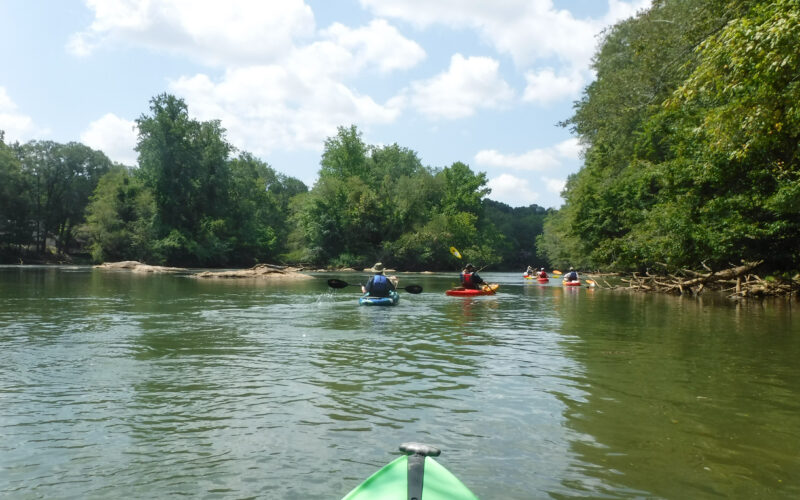“Did you just see that rock move? Wait, it’s not a rock, it is a turtle!” If you see a large rock-looking turtle on the bottom of the river or a stream, there’s a good chance that it’s a snapping turtle. Characterized by their massive size and jagged shell, they’re easily mistaken for giant river stones.
Although typically docile in water, snapping turtles will strike if provoked. The powerful jaw of the reptilian snapper can slam shut with a force of more than 1,000 pounds. For your own safety, keep your distance if you see one in a creek or along the riverbank and avoid getting too close just to take a peek—they’re more likely to strike when cornered.
The Chattahoochee River and its tributaries are home to two species of snapping turtles. The dark brown, jagged tail and long, serrated tail of common snapping turtles (Chelydra serpentina) can be spotted all over the Chattahoochee River and its streams, swamps, wetlands and farm ponds. These snappers are large—
adult shells can reach a length of 19 inches and weight of up to 75 pounds. The largest members of this species are often confused with alligator snapping turtles (Macrochelys temminckii), which are also found in smaller numbers within the Chattahoochee, but mostly in the coastal plain rivers that flow to the Gulf of Mexico.
Alligator snappers are distinguished by their enormous triangular head and hooked jaw. Both species of snappers eat vegetation and animals, including adult and larval insects, crayfish, amphibians, snakes, smaller turtles, birds and small mammals. Alligator snapping turtles, as their name suggests, will even eat small alligators!
Snappers generally have few predators, other than humans who have been known to trap them out of fear or for food. Despite the fierceness of these turtles, snappers represent a unique part of the Chattahoochee’s ecosystem, and are worthy of respect and awe (from afar!).
This story originally appeared in our Summer 2019 edition of RiverChat.



